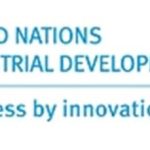Our latest round-up of tech news from across Africa focuses on support for startups in Rwanda, a pilot scheme for electric buses in Kenya and services to help banks adapt to the digital environment.
Over the last decade, Rwanda has worked hard to establish itself as a tech hub. Despite only being a small market, it has aimed to attract serious investors and startups alike.

The government has recently partnered with Co-creation Hub (CcHUB), Google and Mojaloop Foundation to launch the Fintech Innovation Project.
As part of the initiative, Nigeria-based CcHUB will be supporting early-stage fintechs and innovators with an incubation programme. There will be two cohorts of 15 startups over the course of the year, with a $10,000 grant to each selected company.
Interested startups can apply here. The deadline for applications is Tuesday, February 22, 2022.
In addition to the support and access to Mojaloop and Google resources, the incubation programme will create the opportunity for selected companies to receive further investment through the project partners’ investor networks.
Arguably, the most-well known startup associated with the East African country is Zipline, a drone delivery-company that launched in Rwanda in 2016. The California-based company made headlines using drones to deliver blood. It has since been valued at well over $1bn and has expanded into retail and e-commerce.
Another interesting Rwanda-based company is Ampersand, an electric motorbike company, which raised $9m in debt last year to fuel its expansion, with plans to enter Kenya.
Electric buses come to Nairobi
Downtown Nairobi is often fabled for its noisy and congested streets, with harmful gases billowing out of Kenya’s vibrantly coloured local buses called matatus. Alongside African governments taking steps towards greener economies, electric vehicle (EV) startups have sprung up across the continent, offering sustainable solutions.
Starting in February, Nairobi-based electric vehicle (EV) and finance company BasiGo will pilot-test two electric buses with public transport providers, offering a model for how Kenya can move towards an electrified and sustainable transport future.
The e-mobility startup, which launched in November last year, plans to bring over 1,000 electric buses with 25 and 36 seat capacities to Kenya for purchase by bus operators over the next five years. The buses are being sourced from BYD Auto, the largest manufacturer of electric buses globally, and although the pilot buses were imported fully-built, the eventual goal is for BasiGo buses to be locally assembled.
The startup joins other EV companies like Tanzania-based Greenfoot Africa and Nigeria-based MAX, both of which have raised significant amounts in recent years. BasiGo itself raised $1m in pre-seed funding in November, with plans to enter other countries in East Africa.
Technology-providers: In-between fintech and banks
The relationship between banks and fintechs in Africa is a conversation that often happens without reference to one key party: external technology providers that offer digital services to banks and other financial institutions.
While some banks build their own software, many pay external contractors to incorporate infrastructure that allows them to offer a range of digital services like mobile money and cross-border transactions.
Skaleet, a Paris-based company that provides core banking services to financial institutions in Africa, Europe and Latin America, is one such company. It works with more than 20 banks in Africa, and Yves Eonnet, chairman and cofounder, says that the market size is growing as more and more banks double down on digitisation strategies.
“The disruption that banks are facing is extremely scary for them, but it’s a disruption that every bank in the world will have to face,” he tells Tech54.
Global consultancy McKinsey estimates that Africa’s banking industry could lose more than $48bn in cumulative revenue by 2024 if banks fail to go digital or adapt to the Covid-19 marketplace.
Despite the demand for digital services, Eonnet says that Skaleet has relatively few competitors in Africa. Other notable companies include FIS, Temenos and Sopra but each has a limited footprint on the continent. Eonnet adds that Berlin-based Mambu made inroads into Africa but the company has scaled back its operations due to low pricing.
Often overlooked while fintechs and banks take all the limelight, companies working in the sector have a unique value proposition and will likely grow substantially in the years to come.
Source:https://african.business/


















Add Comment